Writer Doan Gioi. Photo: thethaovanhoa.vn |
Great writer of Vietnamese literature, "the giant of Southern literature"
Writer Doan Gioi was born on May 17, 1925, in My Tho town, My Tho province, now Tan Hiep commune, Chau Thanh district, Tien Giang province. His birth name is Doan Van Gioi. In addition to the pen name Doan Gioi, he also has other pen names such as Nguyen Hoai, Nguyen Phu Le, Huyen Tu.
In 1939, after finishing primary school in his hometown, he went to Saigon to continue his high school studies. Before pursuing a literary career, being passionate about painting, he took the entrance exam to Gia Dinh Fine Arts School and studied there for 1 year.
His first short story was “Remembering the Homeland” (1943) and was one of his successes, published in the Spring issue of the Nam Ky Weekly.
In 1945, when the August Revolution broke out, he temporarily put aside his writing work to return to his homeland and join the resistance. After the Dien Bien Phu victory, he gathered in the North and worked at the Voice of Vietnam Radio . Later, he moved to work at the Vietnam Writers Association.
During the years he lived and worked in the North, most of his works were about the people and land of the South: "The Bamboo Tree", "The Rustling Night Forest", "The Hunt for Weapons", "The Ca Mau Mangrove Tree", "The Grouper", "The Call of the Thousand"... - works written in the deep nostalgia of a Southerner far from home.
Doan Gioi's writings bring readers vivid images of the nature and people of the South; combined with a rich life experience, his works have great value in enriching readers' knowledge as well as love for their homeland and country.
Not only imbued with the breath of rivers and forests of the South with very real but extremely mysterious stories of the wild nature of the South, his stories also always have a warning character with profound messages about preserving the special ecological environment of the South.
According to poet Cao Xuan Son, Director of Kim Dong Publishing House branch in Ho Chi Minh City, to best describe writer Doan Gioi, we must take the image of the mangrove tree in the South. The mangrove tree is simple, familiar but contains a strong vitality, which is the closest representation of Doan Gioi's literature and personality. Doan Gioi's writing is the same, simple, easy to read, easy to understand but contains great values about Vietnamese culture.
Not only a writer, Doan Gioi is also a journalist and painter.
And the work "Southern Forest Land"
"Southern Forest Land" is the most famous work of writer Doan Gioi. Photo: Vietnam+ |
Writer Doan Gioi wrote in many genres and on many topics: novels, novels, short stories, memoirs, essays, research, poetry and poetic drama; especially in the childhood memories of many generations of Vietnamese teenagers, Doan Gioi left a strong impression with the immortal work "Dat rung phuong Nam". As Poet Cao Xuan Son said, there has never been a work about nature for children as good as this!
“The Southern Forest Land” brings readers many interesting things about the context, people, and cultural customs of the Southern countryside. He uses the image of a boy who was lost during the resistance war against French colonialism in the South to introduce an extremely rich, generous, and majestic land with loyal, intelligent, and brave people who wholeheartedly follow the resistance.
It can be said that “Southern Forest Land” is like a miniature society of the Mekong Delta. There, people see the image of the people of the Southern region from Tien River, Hau River stretching to Kien Giang - Rach Gia, then down to U Minh forest and in Nam Can - Ca Mau; a land of heaven and sky favored by nature, vast fields, rich forests, wild animals of all kinds... Doan Gioi's ingenuity is to recreate the river scene, people from the time when our ancestors carried swords to open up the country.
It can be said that “Dat rung Phuong Nam” is a piece of writing about people, about the typical land of the South. And he is the one who sowed the seeds in the souls of many generations of readers. For Northern readers, he is also the one who brought the land of the South to Northern readers.
According to poet Nguyen Quang Thieu, he was a reader of “Dat rung phuong Nam” twice. The first time, when he was a boy, “Dat rung phuong Nam” planted an important and magical spiritual seed in his childhood soul, opening up a strange, mysterious, and enigmatic world of nature that is always associated with human destiny... As for the time he read it as an adult, the first book he wrote for children was influenced by “Dat rung phuong Nam” as well as “De men di luu ky”. "I am grateful to writer Doan Gioi because he planted a literary seed in my soul, a reflection on the profession: if there were no longer emotions and passion for the universe, including human life, it would be difficult to have pages of literature that move the souls of all generations", poet Nguyen Quang Thieu confided.
Interestingly, “Dat rung Phuong Nam” was written at the request of writer Nguyen Huy Tuong, who was the Director of Kim Dong Publishing House at that time - in 1957. But according to poet Huu Thinh, Doan Gioi wrote for children but adults also read it with great enthusiasm. He wrote novels and it became a wonderful film script. He accepted orders but was not constrained in any way, completely unrestrained, open to pour all his talent onto the page, extremely passionately.
“Dat rung phuong Nam” has been translated into many languages: Russian, Polish, Chinese, German, Spanish… From “Dat rung phuong Nam”, Ho Chi Minh City Television Film Studio (TFS) produced the film “Dat phuong Nam”. Director Vinh Son said that he was the one who proposed the project of making a TV series “Dat phuong Nam” to TFS in 1997: "Up to now, I have not used up all the materials about Dat rung phuong Nam by Doan Gioi, there is still enough to make a film project about this land".
Writer Doan Gioi passed away on April 2, 1989. He was posthumously awarded the State Prize for Literature and Arts in 2001.
His main works include: “The Southerners Would Rather Die Than Surrender” (poetic drama, 1947), “The Heroic Spirit of the Country” (memoir, 1948), “The Bloody Lines of Southern Vietnam 1940” (memoir, 1948), “The Road to Homeland” (story, 1948), “The Soldiers of Thap Muoi” (poetic drama, 1949), “Keeping Faith” (poetry, 1954), “Grouper” (story, 1956), “Tam Vong Top” (memoir, 1956); “Tran Van On” (memoir, 1955), “Southern Forest Land” (novel, 1957), “Sunflowers” (short story, 1960), “The Search for the Armory” (story, 1962), “Strange Stories About Fish” (research, 1981), “Rhino in the green forest” (research, 1982).
( According to https://baotintuc.vn/van-hoa/nha-van-doan-gioi-va-tac-pham-bat-hu-dat-rung-phuong-nam-20250517075337651.htm )
Source: https://baoapbac.vn/van-hoa-nghe-thuat/202505/nha-van-doan-gioi-va-tac-pham-bat-hu-dat-rung-phuong-nam-1042813/


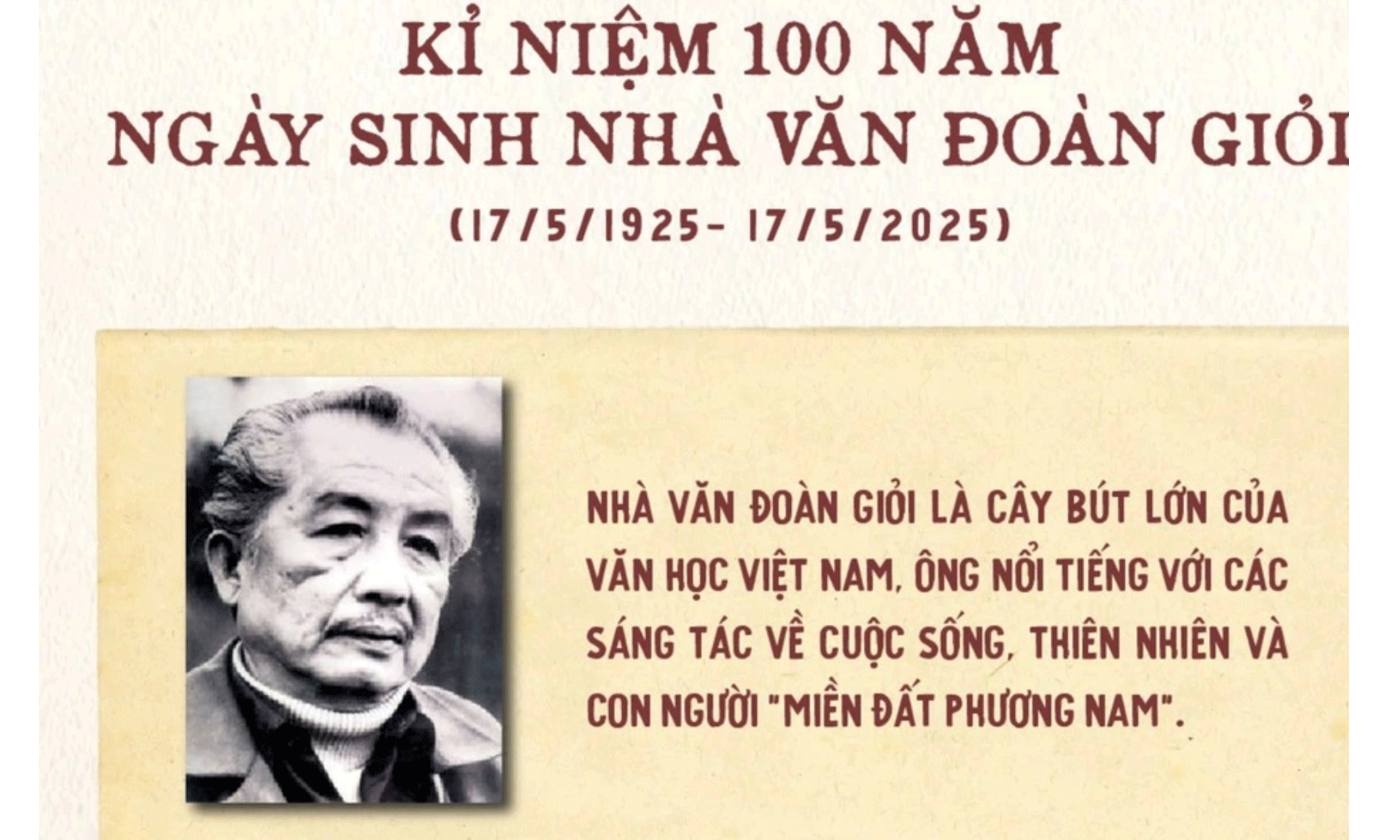
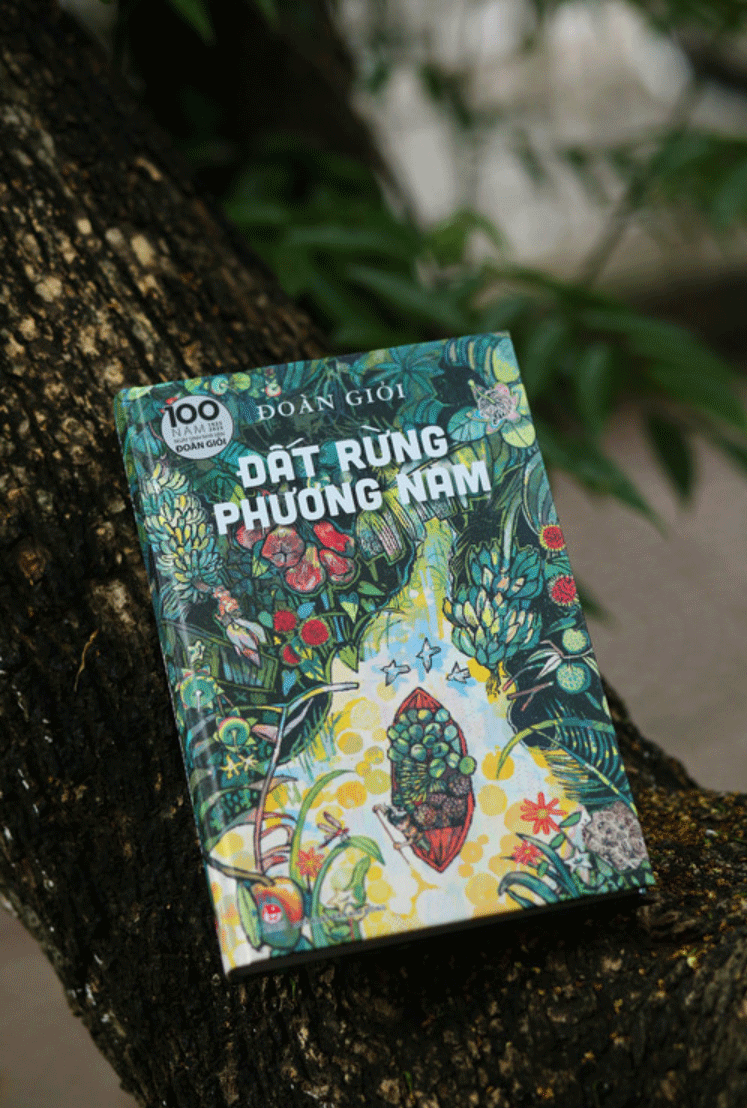
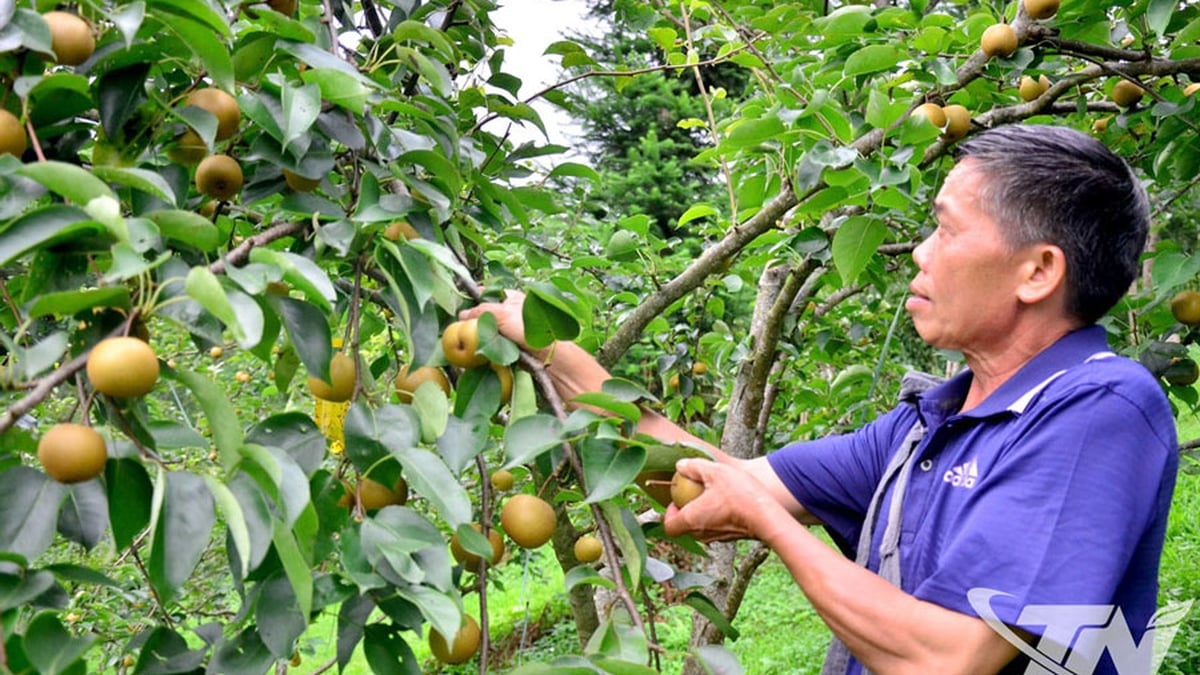
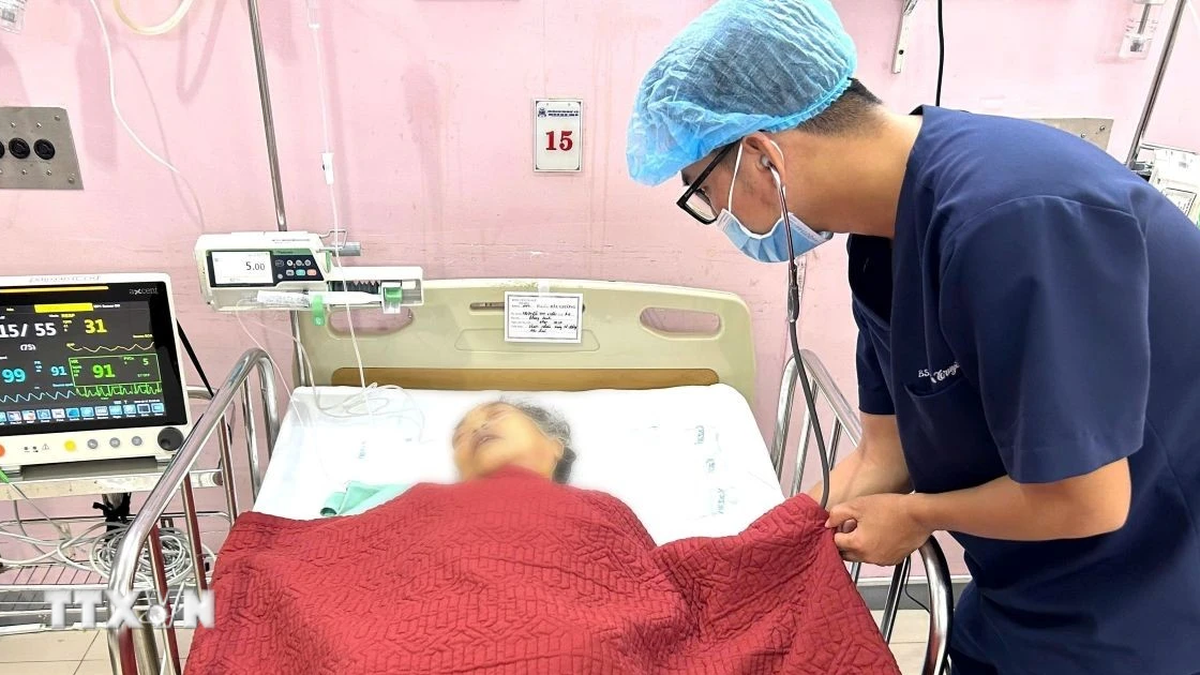

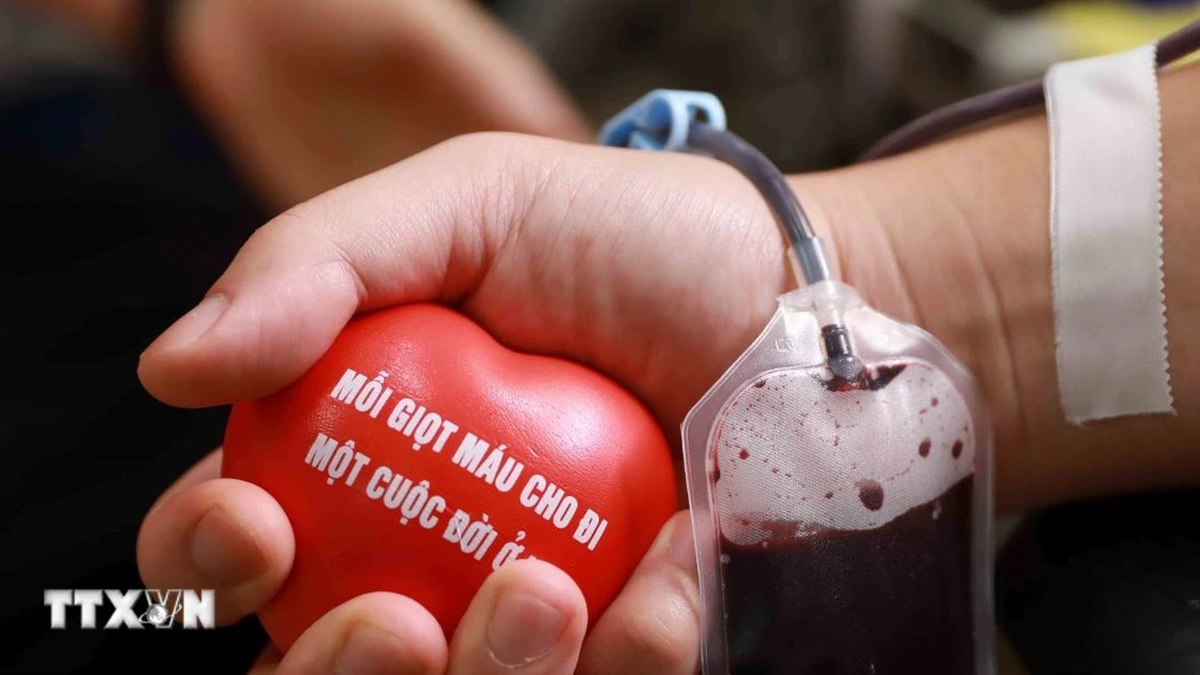
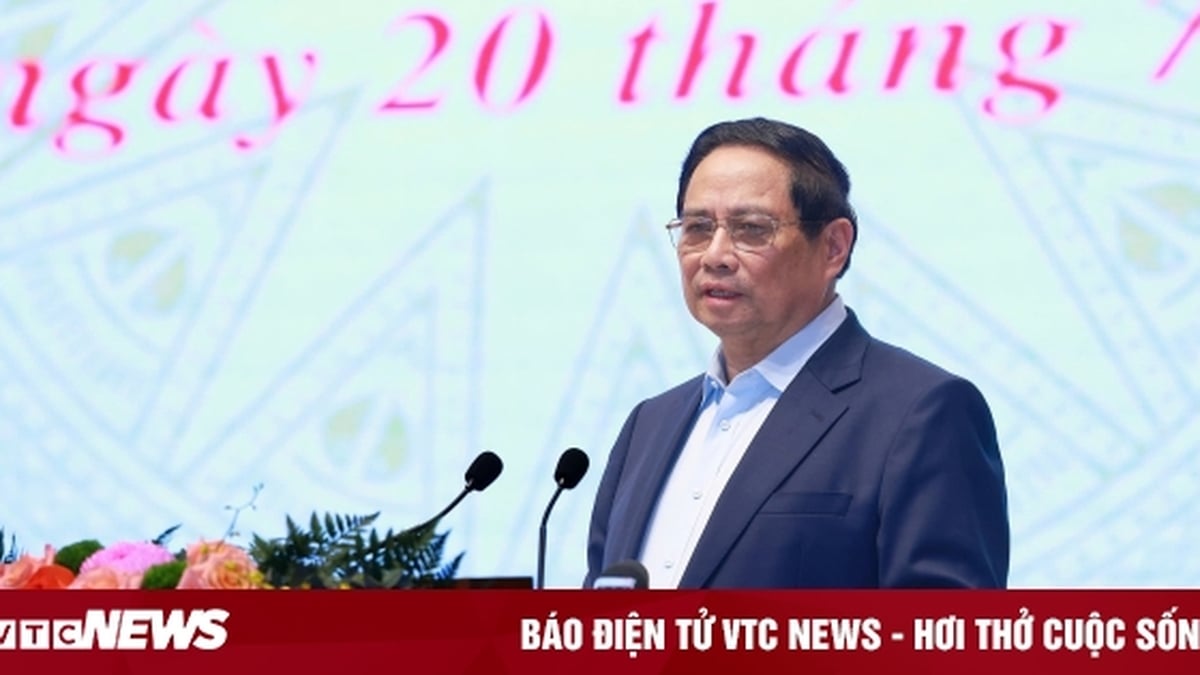
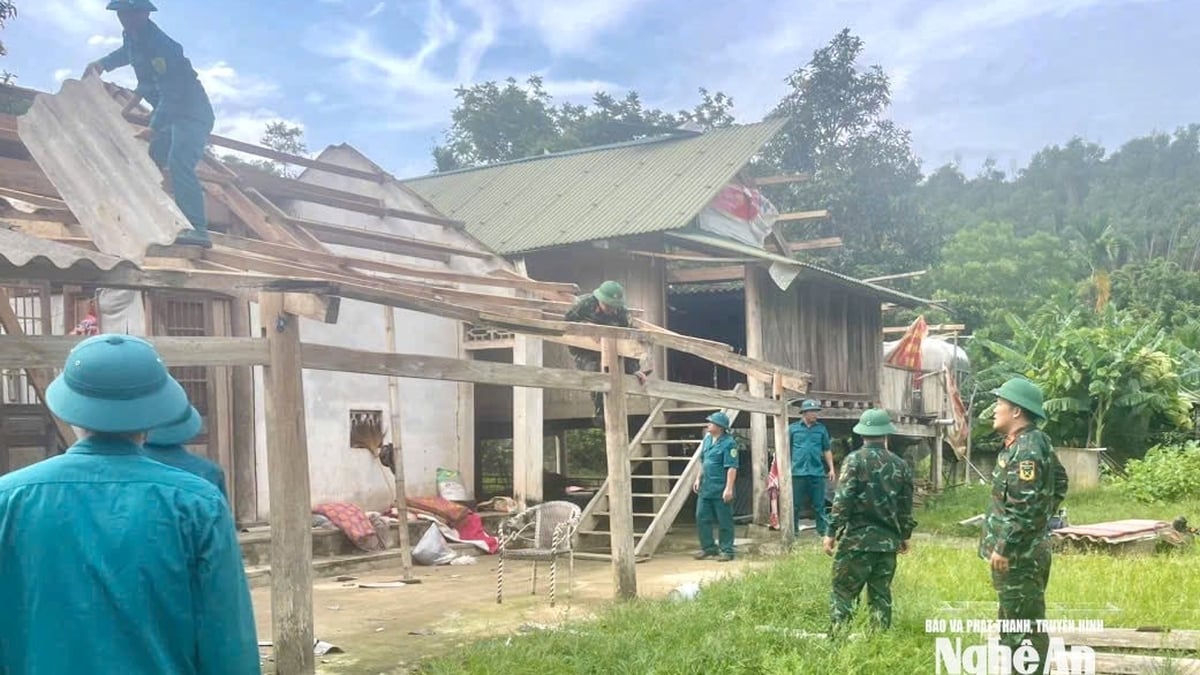

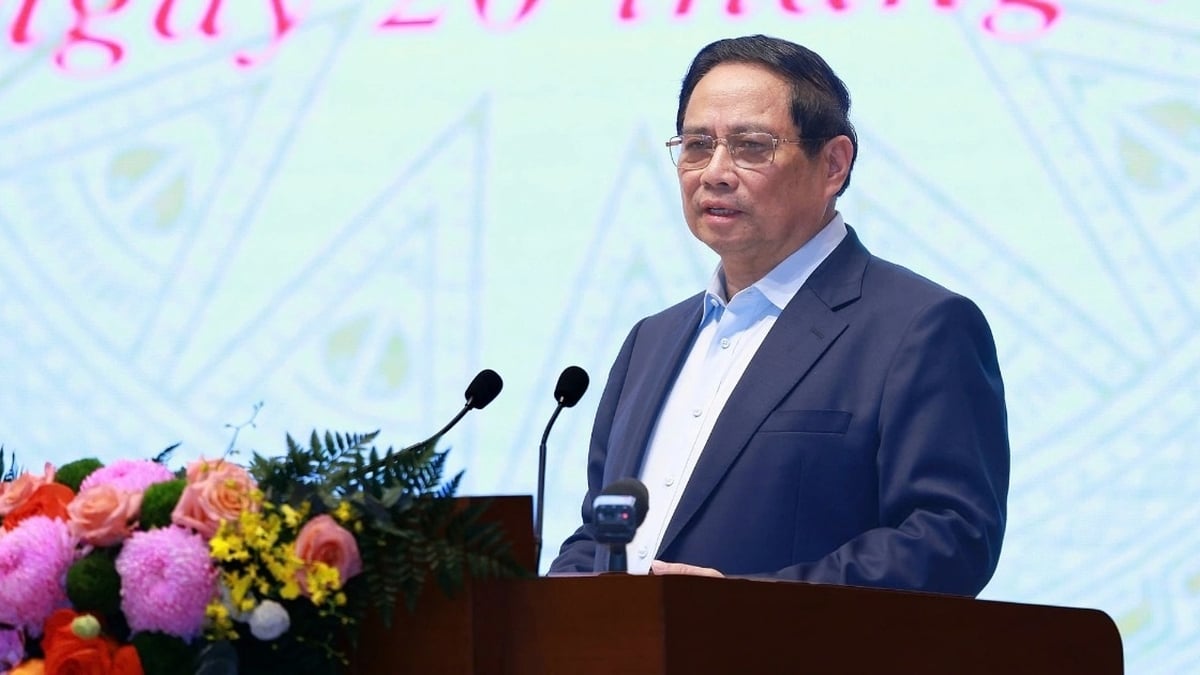
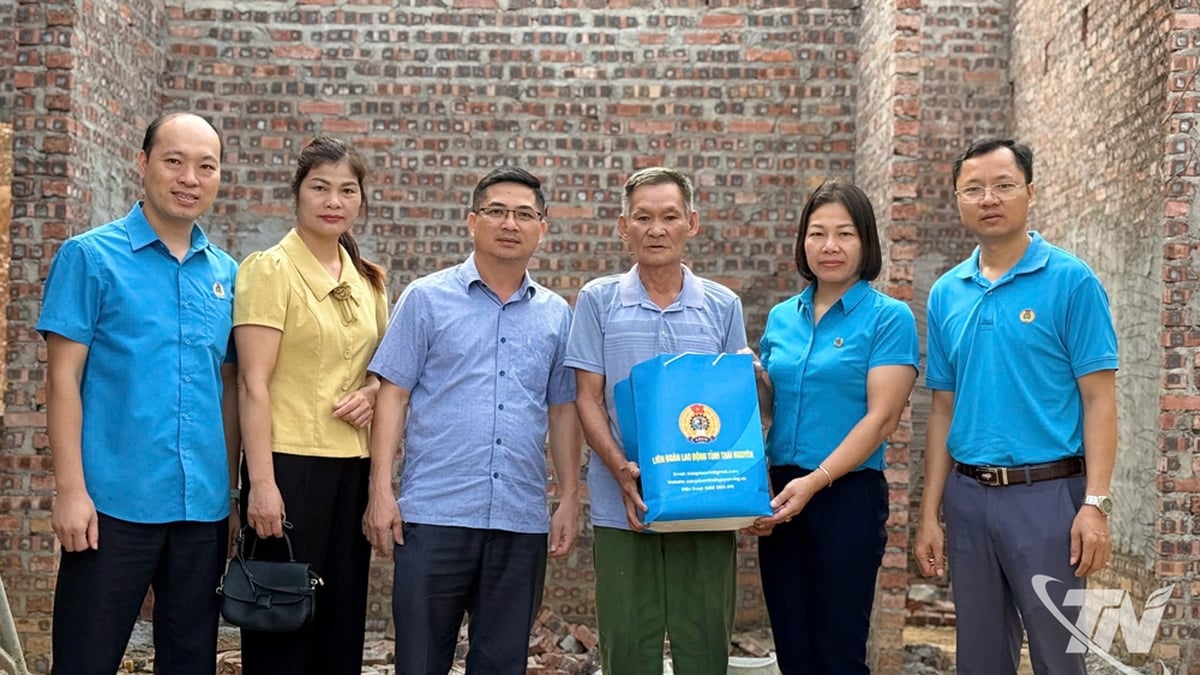











![[Photo] National Assembly Chairman Tran Thanh Man visits Vietnamese Heroic Mother Ta Thi Tran](https://vphoto.vietnam.vn/thumb/1200x675/vietnam/resource/IMAGE/2025/7/20/765c0bd057dd44ad83ab89fe0255b783)













































































Comment (0)